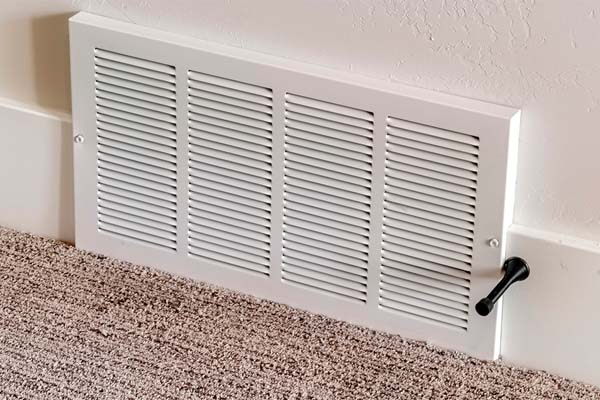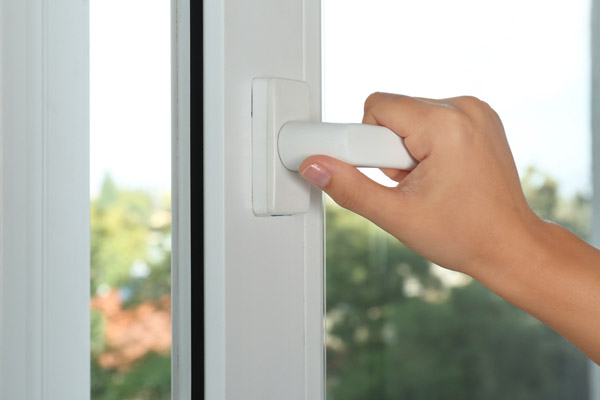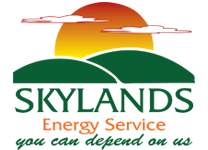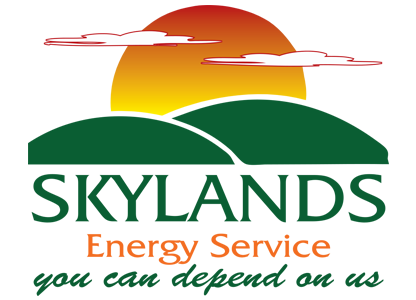
Grasping the significance of proper home ventilation is crucial for ensuring a living space that is healthy and comfortable and excels in energy efficiency. Ensuring the right amount of ventilation is key to preserving indoor air quality. This is achieved by eliminating contaminants, excess moisture, and unpleasant smells. Moreover, it plays a pivotal role in balancing indoor temperature and reducing reliance on extensive heating or cooling systems. This article focuses on the criticality of ventilation for the inhabitants’ health and the home’s energy performance. We will explore the intricate equilibrium required to maintain a steady influx of fresh air while curbing energy wastage.
Comprehending Home Ventilation
Table of Contents
Home ventilation involves the deliberate process of swapping air from inside and outside a living space. This process facilitates a steady stream of new air, simultaneously expelling indoor contaminants, excess moisture, and unwanted smells. It’s a fundamental aspect of ensuring a living space is both healthy and agreeable to be in. Ventilation gives residents the benefit of accessing fresh air that is suitable for breathing.
Varieties of Home Ventilation Systems

Home ventilation can be categorized into two distinct types:
- Natural Ventilation: This type depends on the movement of air through openings like windows, doors, and vents, propelled by natural elements like wind and variances in temperature. It’s a passive method, significantly affected by the structure’s design, positioning, and local weather conditions.
- Mechanical Ventilation: This method utilizes mechanical aids such as fans, air exchange systems, and ductwork to manage and steer the airflow. Mechanical ventilation is particularly beneficial in structures with limited natural ventilation or scenarios where specific air exchange rates are necessary.
The Significance of Ventilation in Upholding Indoor Air Quality
Ventilation is vital in enhancing the quality of indoor air. It achieves this through several means:
- Removing pollutants
- Controlling humidity
- Eliminating odors
- Diluting indoor pollutants
- Comfort and temperature management
The Necessity of Adequate Ventilation

There are multiple compelling reasons why adequate ventilation is crucial:
- Ensuring Air Quality: Efficient ventilation ensures that fresh air is continually circulated, effectively diluting indoor pollutants like volatile organic compounds (VOCs), allergens, and airborne particles. This consistent air exchange prevents the accumulation of harmful substances, promoting a healthier indoor air environment and minimizing the risk of respiratory problems.
- Combatting Mold and Humidity: Proper ventilation is key in controlling indoor humidity and expelling excess moisture to prevent mold, mildew, and bacteria growth. This helps in averting structural damage and protects residents from health hazards associated with dampness.
- Odor and Heat Reduction: Effective ventilation removes odors from cooking, pets, and other sources, keeping living spaces fresh. It also expels extra heat from appliances, reducing reliance on air conditioning for comfort.
- Health Advantages: Good ventilation benefits respiratory health by lowering allergen, irritant, and pollutant exposure. This can ease allergies, asthma symptoms, and other respiratory issues, enhancing overall health.
Determinants of Ventilation Requirements
Various elements shape the ventilation needs of a home:
- Home Size and Design: The home’s dimensions and architectural layout significantly affect air circulation. Bigger homes often need more ventilation sources to ensure uniform airflow throughout.
- Occupancy and Daily Habits: The number of people living in the home and their everyday activities also influence ventilation requirements. More inhabitants and activities such as cooking, showering, and using various products lead to increased indoor pollutants, necessitating more effective ventilation solutions.
- Climate and Seasonal Factors: Local weather conditions and climate significantly dictate ventilation needs. Proper ventilation is vital for moisture control in humid regions, whereas in colder areas, it prevents indoor condensation and mold formation.
- Construction and Age of the Home: The materials and design used in a home’s construction influence its natural air exchange capabilities. Older homes often lack airtight features, making efficient ventilation crucial. Conversely, modern, energy-efficient homes with better insulation may need mechanical ventilation systems to ensure sufficient air circulation.
Assessing Your Home’s Ventilation Requirements
To accurately gauge the ventilation needs of your home, consider these approaches:
- Professional Evaluation: Engaging a qualified HVAC technician or energy auditor is reliable. They conduct comprehensive evaluations through techniques like blower door tests, air quality monitoring, and airflow analysis. These assessments are tailored to your home’s size, the number of occupants, and the local climate, ensuring an accurate determination of necessary ventilation rates.
- DIY Assessment Techniques: You can undertake a basic self-assessment by monitoring your home’s air quality and humidity levels. For more precise calculations, utilize standards from bodies like ASHRAE, which offer formulas to estimate ventilation needs based on occupancy and the home’s floor area.
- Online Tools and Resources: Numerous online calculators and tools can help estimate your home’s ventilation needs. They typically factor in home size, number of residents, and activity levels to suggest approximate airflow rates. However, while these tools are user-friendly, they may not fully consider unique home features and specific local environmental conditions, unlike in-depth professional evaluations.
Challenges of DIY Ventilation Strategies
Ventilation demands a nuanced understanding of various elements like house size, number of inhabitants, and climatic conditions. Relying solely on a DIY method can lead to miscalculations, causing either inadequate or excessive airflow, which impacts indoor air quality and comfort levels.
Moreover, DIY ventilation systems risk bringing in outdoor pollutants, allergens, or too much moisture. Lacking professional insight, these self-installed solutions could unintentionally degrade air quality, posing health risks to those living in the space.
Improper DIY installation or modifications to HVAC systems can result in inefficiencies, frequent breakdowns, or even significant damage. Such issues often lead to costly repairs and can adversely affect your home’s overall comfort and energy efficiency.
Taking a DIY approach to ventilation can be risky. Inexperienced handling of electrical components, ventilation ducts, or entire systems might cause accidents, potential fires, or health risks for those living in the home. Moreover, if such DIY solutions don’t comply with building codes or result in complications, they could lead to legal and liability issues.
Ventilation Standards and Guidelines
Organizations such as ASHRAE have established standards and guidelines crucial for maintaining indoor air quality and comfort. These include specific recommendations on ventilation rates, airflow needs, and design aspects to ensure efficient ventilation in both residential and commercial structures.
Ventilation standards are designed to be versatile, accommodating different types of residences, including single-family homes, apartments, and high-rise buildings. They consider factors like occupancy, building size, and local climate conditions. This flexibility allows the standards to be tailored to various architectural styles and the unique needs of occupants.
Enhancing Home Ventilation Effectively
To boost your home’s ventilation, consider the following:
- Maintain Your HVAC System: Regular cleaning or replacing air filters, inspecting for duct leaks, and ensuring the system functions optimally are crucial. A properly maintained HVAC system is key to achieving efficient airflow and ventilation in your home.
- Ventilation System Upgrades and Options: Align your system with the latest standards. Options like exhaust fans, supply fans, and advanced solutions such as Heat Recovery Ventilators (HRVs) or Energy Recovery Ventilators (ERVs) are effective. These systems exchange indoor air with fresh outdoor air efficiently, conserving energy. They’re particularly beneficial in homes with tight sealing, offering controlled and consistent ventilation.
- Natural Ventilation: Improve air circulation in your home by strategically opening windows to create cross-ventilation, allowing fresh air in and stale air out. Install window screens to keep insects at bay while enjoying the breeze. Additionally, take advantage of cooler outdoor conditions, like evening air, to naturally cool your indoor spaces.
Analyzing the Costs and Benefits of Home Ventilation
Enhancing your home’s ventilation can lead to significant advantages, including:
- Energy Efficiency: Proper ventilation aids in maintaining an optimal indoor temperature, thereby decreasing the dependency on heavy heating or cooling systems. Advanced ventilation designs, especially those that recover heat from expelled air, play a key role in sustaining comfortable indoor conditions with lower energy usage.
- Health and Comfort Gains: Upgrading your home’s ventilation can notably enhance indoor air quality, leading to healthier living conditions. By effectively reducing pollutants and allergens, it minimizes respiratory problems and boosts overall well-being, improving comfort for everyone in the home.
- Sustaining Home Integrity: Good ventilation prevents excessive moisture accumulation, which can result in mold growth and damage to building materials. By maintaining ideal humidity levels and averting moisture-related issues, effective ventilation contributes significantly to your home’s long-term preservation and structural integrity.
Conclusion
Adequate home ventilation is vital for preserving indoor air quality, ensuring comfort, enhancing energy efficiency, and upholding the structural integrity of your home. Recognizing the factors that affect ventilation needs and adhering to established standards is essential. While DIY methods may carry risks, engaging professional services ensures precise evaluations and effective, customized solutions for your specific home needs. Opting for expert guidance avoids potential hazards and fosters a cleaner, healthier, and more enjoyable living space.
Call Skylands Energy Service for Expert HVAC Services
Skylands Energy Service is the premier choice for heating and cooling services in Central New Jersey. Our expert and professionally certified technicians are well-versed in a plethora of HVAC services, including tune-ups, repairs, installations, and replacements. We are committed to delivering superior quality service to every customer.
At Skylands Energy Service, we recognize the value of a comfortable, energy-efficient home. This understanding is reflected in our competitive pricing structure. Our maintenance services are meticulously designed to elevate your home’s comfort while minimizing energy costs. Need an HVAC repair or a system replacement? Our knowledgeable technicians are here to guide you to the most suitable options, always mindful of your budgetary constraints. We back our work with a satisfaction guarantee so all our clients have peace of mind.
Skylands Energy Service stands behind our services with a solid satisfaction guarantee. To arrange a service visit and receive a complimentary, in-home estimate, contact Skylands Energy Service today.
Contact us now at (908) 707-1776 to find out more! To view our service area, click here.

Related Articles:

